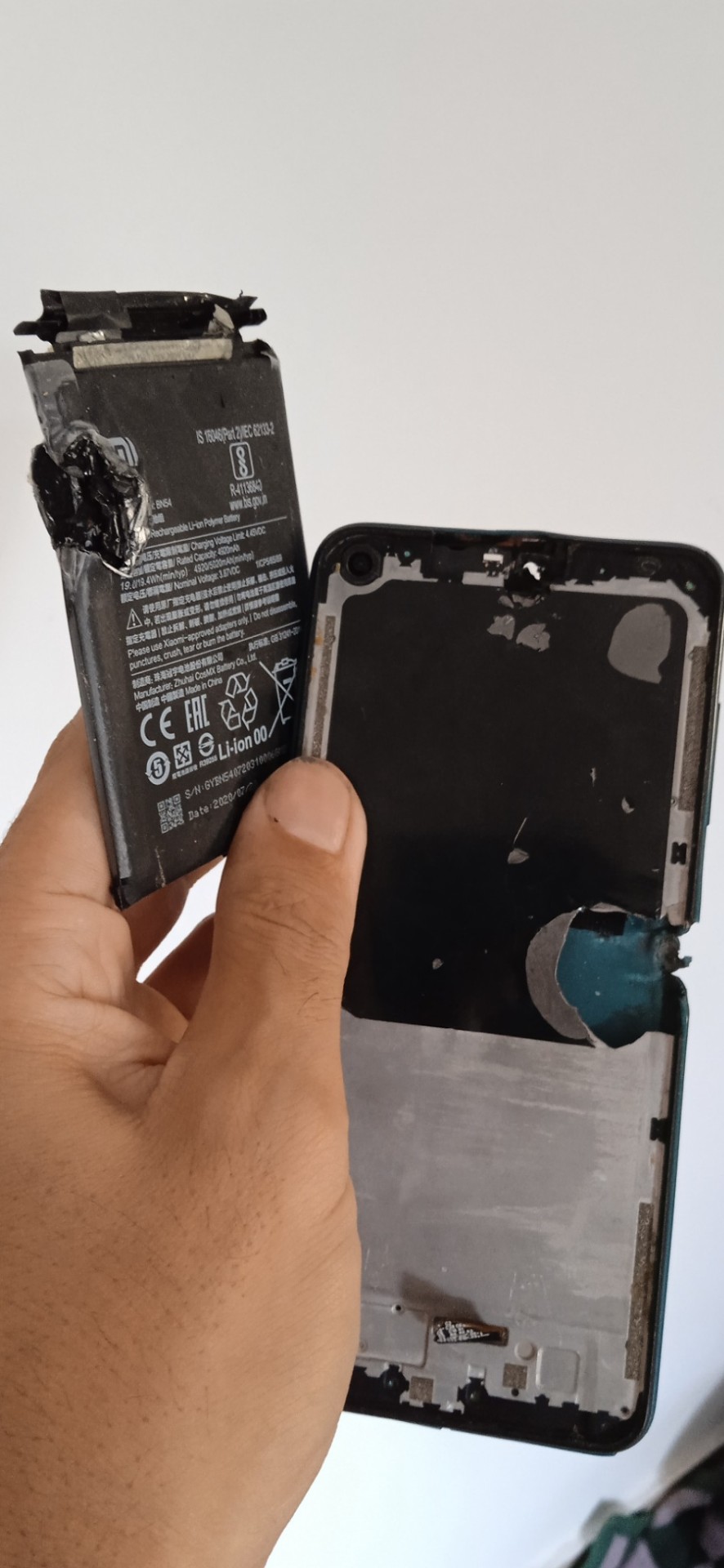Text
I am Mohammed, I live in the northern besieged Gaza Strip, I am 21 years old, I have always tried to create a beautiful future for myself in which I achieve all my wishes. I had ambitions and dreams, but they evaporated because of the war, but I still want to achieve them despite the siege. During the war, I lost many things, including my university, my dreams, my job, and some friends. Despite that, I still want to achieve my dreams and ambitions. I want to rebuild my life again, so please help me in that and rebuild my life. Therefore,
please donate as much as you can because that helps me a lot. If you cannot donate, tell people about my suffering.






33K notes
·
View notes
Text
⚠️Please Help my children ‼️
✅️Vetted by @gazavetters, my number verified on the list is ( #641 )✅️
Please donate and share
Hello friends, I am Abdullah Salem Abdullah Jaafar, 26 years old, a graduate of the University College with a degree in Information Technology - Multimedia. I used to have a beautiful family; I’m married and have four children, and my wife is pregnant.
I previously worked at a multimedia company, but because of the war, I lost my job, my home, my car, and now I have no place to live or work.
During the war, we were forced to evacuate more than four times. Each time, we had to leave everything behind without taking any of our personal belongings.
I live in northern Gaza.
We were displaced to southern Gaza, then to Deir al-Balah, then to Rafah, and now we live in an uninhabitable tent that is not suitable for living.
My daughter Rahaf was martyred in the war due to Israeli airstrikes. Now I have Iman, Malak, Basel, and my wife is in her seventh month of pregnancy.
Please, I am in desperate need of your help just to provide food and water for my children.
I lost my home and we have become homeless."
Please donate and share










14K notes
·
View notes
Text
it's my birthday tomorrow. i'm a queer unfamilied se asian multiply disabled by neglect and abuse, and i've been navigating worsening complications following brain injury by myself. i'm stuck having hallucinations, nightmares, disordered thinking and non stop intrusive thoughts and feelings. i haven't slept properly in almost five months. i'm so scared and i'm so tired. i haven't been able to keep up with communicating and meeting any of my needs and i haven't been able to explain the ways this injury has affected my ability to. i'm behind on rent and appointment money and meds and food and i've been increasingly falling closer towards a situation where i'm brought under the "care" of the abusers i fled from nine years ago.
in order of priority, i'm $218 short on rent due in a few days. i found a mh practitioner who could work w me sliding scale for $50 minimum per session so hoping for $300 to hold out and stay alive thru isolation til my neuropsych referrals go through. for replenishing the meds i ran out of i need $238. for upcoming tcm appts to manage my pain and symptoms while i'm waiting for western diagnosis and treatment i need $306. please help me get out of this cycle.
paypal.me/disabledoracle
0/1062
117 notes
·
View notes
Text

Contact sheet of James Baldwin, Upper West Side of Manhattan, New York, 1972. Shot by Jack Manning.
2K notes
·
View notes
Text
standing in line to get a delicious breakfast sandwich but my penance is being surrounded by insufferable white ppl w grating voices & conversations
2 notes
·
View notes
Text
Vanilla being an orchid makes so much sense its the most beautiful sexy flavor ever
13K notes
·
View notes
Text
everybody please watch the silences of the palace (1994, dir. moufida tlatli) at your earliest convenience and let me know your thoughts, it's available to stream for free (or for donation) through arte east until tomorrow
9 notes
·
View notes
Text
My friend from Gaza sent me a message saying, "Do you know, my friend, that my neighbor, the rich old man who used to distribute sweets to children in the old neighborhood, died of hunger today?" I paused for a few seconds, then asked her, "How?" She said, "He went out this morning looking for something to feed his little granddaughter. He found nothing but some flour scattered on the sand. He sat down to pick up the flour from the ground. After he finished and walked only fifty steps to the beginning of the street, he fell to his feet, without complaining or speaking. He suddenly fell." My friend said, "When people approached to see what had happened to this man, they noticed him muttering a few words, saying, 'She's been fasting for three days. Don't let her die of hunger like me.' Then he died." At the end of the message, she wrote, "Can you write about him?" Because he didn't die alone. In Gaza, people are killed as if they were nobody. Tell the world that this man was one of many and tell them that I have started collapsing in the street for no reason like this old man even though I am in my twenties and that I need donations to help my young children because these days we have never seen anything like this before. My stomach is empty for more than 50 hours. Donate here.
4K notes
·
View notes
Text
Everyone is dying of hunger in the streets, and I’m starving… please help me buy food.
Donate here PayPal Verification here
7K notes
·
View notes
Text
Have you ever seen a child crying from extreme hunger? Have you ever imagined that any people in this world would die from hunger? Have you ever seen aid called death aid? All of this is in Gaza.
Imagine that you live among them, every minute you are exposed to death, and even every second I suffer a lot for them
I saw a video of a 2.5 year old boy saying I am hungry, I swear I am hungry, it made me cry a lot and even my head started to hurt
We have begun to ignore Gaza. This is a fact. We are no longer like before. The people of Gaza are not numbers. They are people who just want to live.
This post is for spreading awareness and also not to forget Gaza. We, who are behind the screens, can send them donations to provide some food.
I know a child named Nasser, ten years old, who is trying to collect donations to save his family and his younger siblings. Donate to him please
6K notes
·
View notes
Text
Heti: You once said, “I tend to edit and then inevitably revert to the original draft, when I see what I’ve lost by editing.” I agree: there is always some power in the way a person first catches the words on the page. Can you talk about balancing your instinct to keep the rawness with your instinct to clean up? If you often prefer the first draft to the edited draft, what does your editing process consist of?
Ferrante: I detest vapid, sugary, sentimental tones and I try to get rid of them. I detest refinement when it cancels out naturalness, and so I look for precision without going too far. I could continue like that, with a fine list of intentions, but it’s just talk. In fact, I move by instinct, a spontaneous movement that, if I put it in order, becomes merely a banal guidebook. So let’s say that, pulled this way and that by countless readings, by varied layers of taste, by inclinations and idiosyncrasies, I generally aim at what seems to me perfection. Then, however, perfection suddenly seems an insane excess of refinement and I return to versions that seem effective precisely because they are imperfect.
Sheila Heti, A Correspondence with Elena Ferrante, BRICK
17 notes
·
View notes
Text
Please Watch how the American aid point turned into an execution ground.‼️
Occupation bullets tore through the bodies of the hungry in cold blood , without mercy or humanity.💔
That’s why my family cannot go , We are 26 souls, including children and an injured girl who needs care and proper nutrition.
We live between fear and hunger, counting our days in silence under relentless fire.
Please, if you have a heart… don’t scroll past this.
Your donation , or even just sharing this plea could save a life.
Vetted 🇵🇸
I went earlier to the American aid point and we were shot at, I was slightly injured and my phone was shot .


Vetted by @gazavetters , my number verified on the list is ( #102 )
Please we need your donation to stay safe. 👇
@cantsayidont @guerillas-of-history @autisticmudkip @cheshirepirouette
@a-shade-of-blue @sunnylittledragon
@lordzannis @virovac @qattdraws @dyspunktional-leviathan @zone0neko @comrademango @genderdog @deansmultitudes @myceliacrochet
@acehimbo @fancy-strawberry-beard @tamamita @thatsonehellofabird @good-old-gossip
@leechloach @metamorphesque @eremes @waterloggedsoliloquy @fascinationstreetmp3 @queerpyracy @lakesbian @u3pxx @crtvirus @tiercel @borrelia @nonbinary-watanuki @dykentery @ot3 @crusty @libelelle @coastalhorrors @thegreatdemonzhuyan @3000s @omegaversereloaded @raangmanch @c-u-c-koo-4-40k @gemevieve @beas-roses-2007 @dykentery @thenerdybard @meowmaids @rhubarbspring @gravityjunior @samsaraposting
@cheesewhip3 @bingusoclock @hauntedclaymore @courier6sblog @lesbianmichelmishina @auxwired @og-danny-dorito @sahara-silver @dogbound1128 @butchfeygela
@anissapierec @thoughtfulartisansweets
457 notes
·
View notes
Text
spellling, santigold and erika de casier coming to a venue near me soon ..... should I go 👄
6 notes
·
View notes











